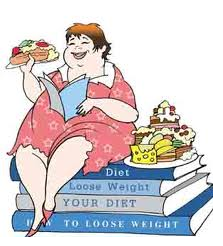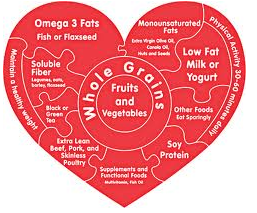 Obesity is becoming a serious problem among children and adults. People these days like to have fast foods, which is an unhealthy diet. Improper diet and lack of exercise are the major causes of obesity. Obesity is a major risk factor for cardiovascular diseases (CVD). There are numerous health problems that are associated with obesity.
Obesity is becoming a serious problem among children and adults. People these days like to have fast foods, which is an unhealthy diet. Improper diet and lack of exercise are the major causes of obesity. Obesity is a major risk factor for cardiovascular diseases (CVD). There are numerous health problems that are associated with obesity.
Obese people are at a greater risk of heart disease. Besides, they are also prone to type 2 diabetes, hypertension and certain cancers. Several studies over the years have found that lifestyle choices and heart disease are interlinked. Lifestyle choices like smoking, drinking and consuming excessive fatty foods lead to development of heart disease.
Causes & Symptoms of Heart Disease
Heart disease generally occurs when fatty deposits build-up on the borders of the coronary arteries. The fatty deposits also known as atheroma are formed through cholesterol and other waste substances. The arteries get narrower when atheroma builds-up on the borders of the coronary arteries. This limits the flow of blood to the heart, thereby leading to heart failure or heart disease.
The major symptoms associated with heart disease include chest pain or chest congestion, dizziness, fainting, fatigue and shortness of breath. Having high cholesterol, high blood pressure and being physically inactive are some of the major risk factors for heart disease. The best way to avoid heart disease is to follow a strict diet and exercise regimen. Weight loss is seen to be the most effective way to lower the risk of fatal heart attacks.
Weight loss lowers risk of heart disease
Majority of heart diseases can be prevented by adopting a healthy lifestyle that includes following a healthy diet and exercising regularly for weight loss. Studies show that losing as little as 5-10 pounds lowers high blood pressure and cuts the risk of heart disease. Research conducted by scientists at Harvard Medical School revealed that those who were obese as a teen are at a greater risk of heart disease. However, the good news is that reducing weight in your middle age can lower the risk of heart disease.
Role of diet and exercise in treating obesity
Diet and exercise play an important role in weight loss. The primary objective of following a healthy diet is to reduce weight. This can  be done by consuming fewer calories. The body requires certain amount of calories for energy needs. Adults generally require 1200- 2800 calories per day based on the body size and activity level. Lowering carbohydrate content from your diet will result in weight loss. This is because you tend to lose certain amount of fluid from your body. Here are a few foods you must include in your diet for a healthy heart.
be done by consuming fewer calories. The body requires certain amount of calories for energy needs. Adults generally require 1200- 2800 calories per day based on the body size and activity level. Lowering carbohydrate content from your diet will result in weight loss. This is because you tend to lose certain amount of fluid from your body. Here are a few foods you must include in your diet for a healthy heart.
- Low-fat protein sources such as lean meat, poultry and fish are the best sources of protein. Choose foods like legumes – beans, peas and lentils that contain less fat and no cholesterol.
- Include vitamins and minerals in your diet. Fruits and vegetables are good sources that provide you with essential vitamins and minerals.
- Whole-grain foods are good for health and lower the risk of heart disease.

